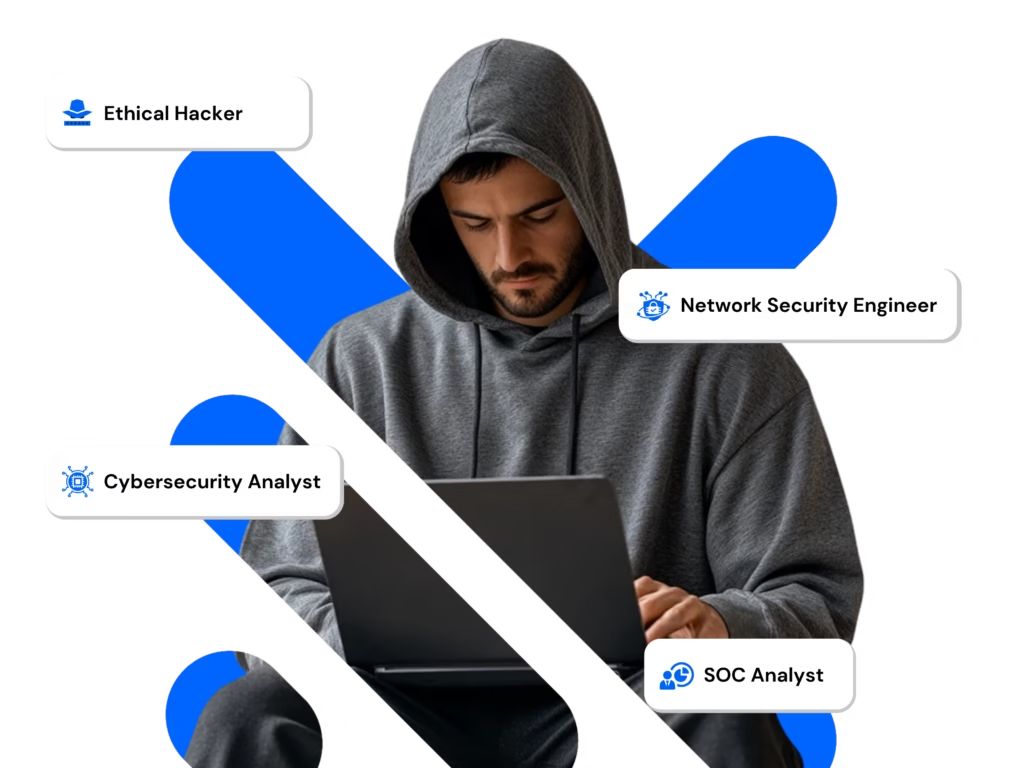
ISO 27001:2022 ISMS Internal Auditor certification is a pivotal qualification for professionals aiming to excel in information security management. As an ISMS internal auditor, your primary role is to ensure that an organization adheres to the ISO 27001 standards, which are designed to protect sensitive data and mitigate security risks. You are responsible for evaluating and identifying potential vulnerabilities within the Information Security Management System (ISMS) and recommending improvements to strengthen the organization’s security framework.
This certification not only enhances your professional credibility but also opens doors to career advancement in the rapidly growing field of information security. Organizations highly value ISMS internal auditors for their ability to maintain compliance, protect assets, and contribute to overall operational resilience.
Table of Contents
Introduction to ISO 27001:2022 ISMS Certification

Overview of ISO 27001:2022 Standard
So, you’ve heard about the ISO 27001:2022 ISMS Internal Auditor certification and are curious about what makes it so significant. Well, get ready, because we’re about to dive into the world of Information Security Management Systems (ISMS) and explore why becoming an internal auditor for this standard is a game-changer for your career. As an ISMS internal auditor, you’re at the forefront of ensuring that an organization complies with internationally recognized security protocols, safeguarding its sensitive data from cyber threats. This certification equips you with the expertise to evaluate and improve security measures, identify weaknesses, and ensure the organization’s ISMS is functioning effectively.
In a world where information security is more critical than ever, the role of an ISMS internal auditor is invaluable, offering both professional growth and the opportunity to make a meaningful impact on an organization’s security posture. By becoming certified, you position yourself as a key player in the fight against cyber risks while advancing your career in the ever-evolving field of information security.
Role and Responsibilities of an ISO 27001 Internal Auditor

Key Responsibilities of an ISO 27001 Internal Auditor
Imagine yourself as the Sherlock Holmes of the cybersecurity realm, meticulously uncovering vulnerabilities and ensuring that information security practices are nothing short of exemplary. That’s essentially the role of an ISMS internal auditor, a vital position in today’s digital landscape. An ISMS internal audit involves assessing an organization’s Information Security Management System (ISMS) to ensure compliance with the ISO 27001 standards. Internal auditors meticulously examine processes, policies, and controls to identify weaknesses and recommend improvements that fortify the organization’s security posture. Their keen insights help organizations stay ahead of potential threats, ensuring that sensitive data is protected and regulatory requirements are met.
The importance of this role cannot be overstated; as cyber threats become increasingly sophisticated, the work of an ISMS internal auditor is crucial in maintaining a secure environment. By conducting thorough audits, these professionals play a key role in safeguarding an organization’s assets and reputation, making them indispensable in the ongoing battle against cyber risks. Ultimately, ISMS internal auditors not only enhance their organization’s security framework but also contribute to the overall resilience of the digital ecosystem.
Understanding the Audit Process
Audits may seem daunting at first, but there’s no need to worry! Think of us as your seasoned tour guide through the ISMS internal audit process, where we’ll explain how internal auditors meticulously evaluate information security management systems. The ISMS internal audit begins with a comprehensive assessment of an organization’s policies, procedures, and controls to ensure compliance with ISO 27001 standards. Internal auditors systematically review the effectiveness of these systems, identifying potential risks and vulnerabilities that could jeopardize sensitive information. Their keen eye for detail enables them to spot gaps in security measures and recommend actionable improvements to enhance the organization’s overall security posture.
By facilitating regular ISMS internal audits, organizations can proactively address weaknesses, ensuring they remain vigilant against evolving cyber threats. This process not only helps maintain compliance with regulatory requirements but also fosters a culture of continuous improvement in information security practices. Ultimately, the ISMS internal audit is an invaluable tool for organizations seeking to bolster their defenses and stay ahead in the ever-changing landscape of cybersecurity.
Advantages of Obtaining ISO 27001 ISMS Certification

Enhanced Credibility and Trust
Picture this: you enter a room filled with potential clients and partners, and the moment they notice that ISO 27001 certification badge next to your name, their eyes light up with trust and confidence. This is the undeniable advantage of enhanced credibility that comes with being an ISMS auditor certified in ISO 27001. As an ISMS auditor, you are recognized as a professional who possesses the expertise and knowledge to assess and improve an organization’s Information Security Management System (ISMS). This certification signifies that you adhere to the highest standards of security practices, showcasing your commitment to protecting sensitive information and managing risks effectively.
Clients and partners are increasingly aware of the importance of information security, and having ISO 27001 certification not only boosts your professional reputation but also fosters a sense of trust in your capabilities. It reassures stakeholders that you have the skills necessary to navigate the complex landscape of cybersecurity, helping organizations mitigate vulnerabilities and comply with regulatory requirements. Ultimately, being recognized as an ISO 27001-certified ISMS auditor not only enhances your personal credibility but also positions you as a key asset in promoting and maintaining robust security practices within any organization.
Competitive Edge in the Industry
In a world where cyber threats seem to lurk around every corner, distinguishing yourself from the competition is essential. With ISO 27001 ISMS auditor certification under your belt, you’re not just participating in the field of information security; you’re leading the charge. This prestigious certification empowers you with the knowledge and skills needed to effectively evaluate and enhance an organization’s Information Security Management System (ISMS). As an ISMS auditor, you gain a comprehensive understanding of security protocols, risk management, and compliance standards, allowing you to identify vulnerabilities and recommend effective solutions. The ISO 27001 certification demonstrates your commitment to upholding the highest security standards, making you a valuable asset to any organization.
In today’s competitive job market, having this certification sets you apart, giving you a competitive edge sharper than a katana. It not only enhances your professional reputation but also assures potential employers and clients that you possess the expertise to protect sensitive data and navigate the complexities of cybersecurity. Ultimately, being an ISO 27001-certified ISMS auditor positions you at the forefront of the industry, enabling you to lead organizations in strengthening their security posture and mitigating risks in an increasingly digital world.
To learn more about this topic and enhance your skills, check out our [ISO 27001:2022 ISMS – Certified internal auditor offered at Sense Academy.
The Process of Becoming a Certified Internal Auditor
Training Requirements
Becoming an ISO 27001 certified internal auditor isn’t merely about cracking codes and enjoying coffee; it entails a significant commitment to training and professional development as part of ISMS internal auditor training. This training equips you with the essential skills and knowledge necessary to effectively assess an organization’s Information Security Management System (ISMS). The first step in this journey typically involves enrolling in a specialized training program that covers the ISO 27001 standard, audit techniques, risk management, and information security principles. These programs often include a mix of theoretical instruction and practical exercises, allowing you to engage with real-world scenarios and develop a deeper understanding of how to conduct comprehensive audits.
Additionally, many training courses offer insights into the latest trends and best practices in information security, ensuring that you stay current in an ever-evolving landscape. Completing this training not only sharpens your audit skills but also prepares you for the unique challenges that come with the role of an ISMS internal auditor. As you progress through your training, you will gain confidence in your ability to identify vulnerabilities, recommend improvements, and contribute to the overall security posture of an organization. Ultimately, investing in ISMS internal auditor training is a crucial step toward building a successful career in information security and ensuring that you are well-prepared to navigate the complexities of the auditing process.
Examination and Certification Process
It’s time to put your skills to the test and demonstrate that you have what it takes to become a certified internal auditor through ISMS internal auditor training. This process involves several critical steps, starting with a thorough understanding of the examination requirements set forth by the certifying body, typically the Institute of Internal Auditors (IIA). To earn your ISO 27001 certification, you must complete a rigorous training program focused on the standards and practices surrounding Information Security Management Systems. This training will equip you with essential knowledge about the ISO 27001 framework, auditing techniques, and best practices for assessing and improving security controls. Following your training, you will need to sit for the certification exam, which tests your comprehension of the material and your ability to apply it in real-world scenarios.
Passing this exam is a significant milestone, as it not only confirms your expertise in ISMS auditing but also boosts your professional credibility. In addition to passing the exam, you must meet any additional certification requirements, such as demonstrating relevant work experience and adhering to continuing education standards to maintain your certification. Successfully navigating this process allows you to proudly declare, “I am ISO 27001 certified!”—a testament to your dedication, skill, and commitment to enhancing information security within organizations.
Skills and Knowledge Required for ISO 27001 Internal Auditors
Technical Expertise in Information Security
To thrive as an ISO 27001 Internal Auditor, it’s essential to have a solid understanding of information security principles that serve as the backbone of any effective Information Security Management System (ISMS). This knowledge encompasses a wide array of security measures, including firewalls, encryption, access controls, and various other technologies that work diligently to safeguard sensitive data—much like the vigilant bouncers of the digital world.
While these security measures may not be physically ejecting unruly patrons from a club, they play a crucial role in ensuring that your data remains secure and inaccessible to unauthorized individuals. As an Internal Auditor, you must comprehend how these security technologies function and how they can be integrated into an organization’s overall security framework.
This understanding enables you to assess the effectiveness of existing security controls, identify potential vulnerabilities, and recommend improvements that enhance the organization’s defenses against cyber threats.
Career Opportunities and Professional Growth as an ISMS Auditor
Advancement in the Field of Audit and Compliance
Becoming an ISMS Auditor opens a myriad of doors to advancement in the dynamic and ever-evolving fields of audit and compliance. In this role, you become the Sherlock Holmes of the cybersecurity realm, meticulously uncovering the mysteries that surround information security practices within organizations. Your keen analytical skills and attention to detail will enable you to identify vulnerabilities, assess risks, and ensure that organizations adhere to established security standards.
As an ISMS Auditor, you take on the critical responsibility of guiding organizations along the secure and compliant path, helping them navigate complex regulatory environments while protecting sensitive data. Your expertise will not only be essential in conducting thorough audits and evaluations but also in providing valuable recommendations for improvement.
This role positions you at the forefront of cybersecurity, allowing you to make significant contributions to the overall security posture of the organizations you work with. Moreover, the demand for skilled ISMS Auditors continues to grow as businesses increasingly recognize the importance of robust information security measures.
Higher Earning Potential
Cha-ching! As an ISMS Auditor, you can anticipate a significant boost in your earning potential, proving that honing your skills in information security can lead to impressive financial rewards. In today’s digital landscape, where cybersecurity threats are prevalent and organizations increasingly prioritize the protection of sensitive data, the demand for skilled ISMS Auditors continues to rise.
This heightened demand translates into attractive salary packages, reflecting the critical role you play in safeguarding an organization’s information assets. By assessing security measures, identifying vulnerabilities, and ensuring compliance with industry standards, you become an invaluable asset to any company, driving their security initiatives forward.
Who would have thought that delving into an organization’s security protocols could result in a fatter wallet? Your expertise not only commands respect but also positions you for lucrative career advancements and opportunities in a field that is constantly evolving.
As businesses strive to navigate the complexities of regulatory requirements and cybersecurity challenges, they are willing to invest in talented professionals who can help them achieve their goals. Therefore, as you develop your skills and gain experience as an ISMS Auditor, you can expect your financial rewards to grow alongside your expertise, making this career path not only fulfilling in terms of job satisfaction but also financially rewarding.
Explore More On:- IoT Security Tools to Protect Your Devices
FAQs:-
What is the significance of ISO 27001:2022 ISMS?
ISO 27001:2022 ISMS is essential for ensuring the security of sensitive data by providing a structured framework for managing information security risks. It helps organizations meet legal and regulatory requirements while enhancing their credibility and trustworthiness in the marketplace.
What are the key responsibilities of an ISO 27001 Internal Auditor?
An ISO 27001 Internal Auditor is responsible for auditing an organization’s Information Security Management System (ISMS) to ensure compliance with ISO standards. This includes identifying vulnerabilities, assessing risks, evaluating the effectiveness of security controls, and providing recommendations for improvement to maintain robust security practices.
How can one become certified as an ISO 27001 Internal Auditor?
To become certified, one must complete formal ISO 27001 training, covering the standard’s principles and audit techniques. After completing the training, candidates must pass an accredited certification exam and fulfill any additional requirements, such as relevant work experience. Certification must be maintained through ongoing education and periodic re-certification.
What career opportunities are available for certified ISMS Internal Auditors?
Certified ISMS Internal Auditors can pursue roles such as Information Security Auditor, Compliance Manager, or Risk Management Consultant. These professionals are in high demand across industries like finance, healthcare, IT, and government, where information security and regulatory compliance are top priorities.





